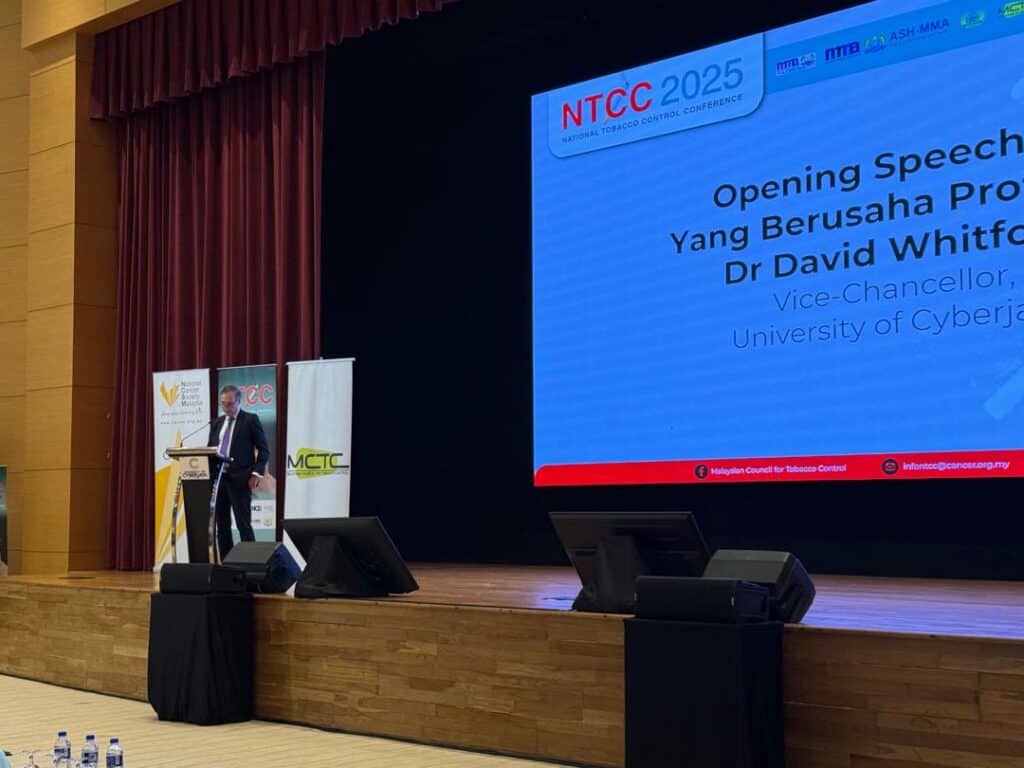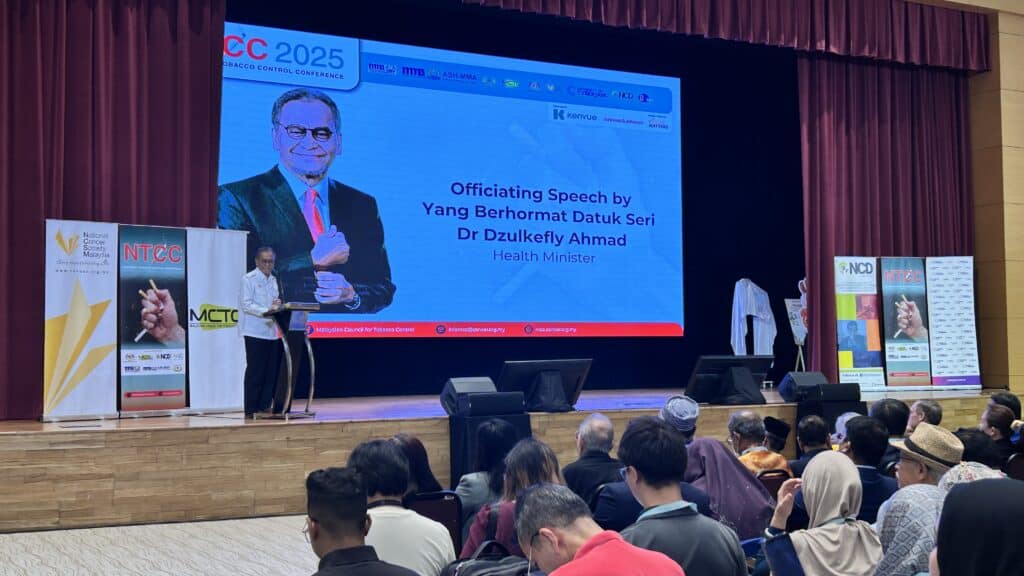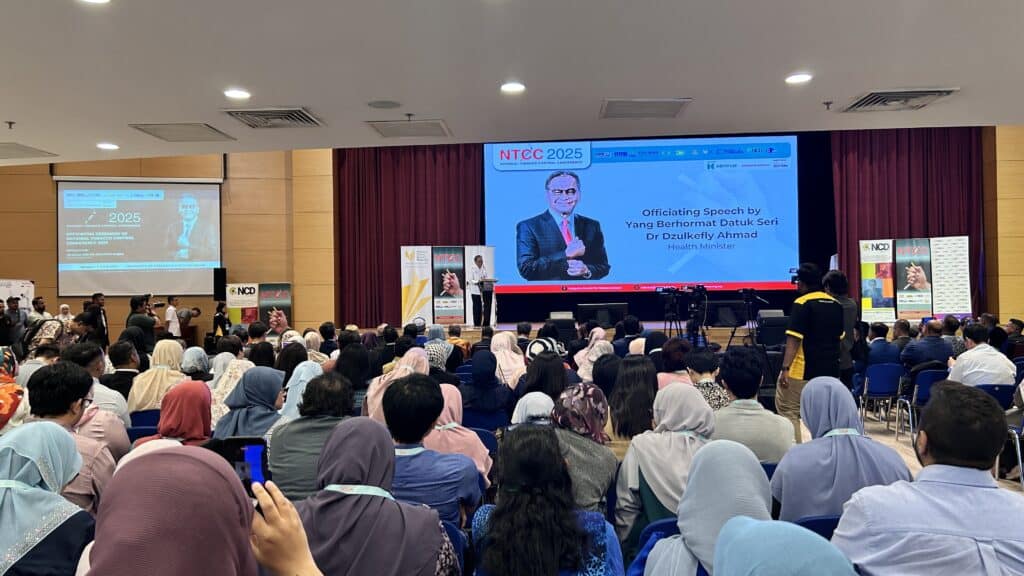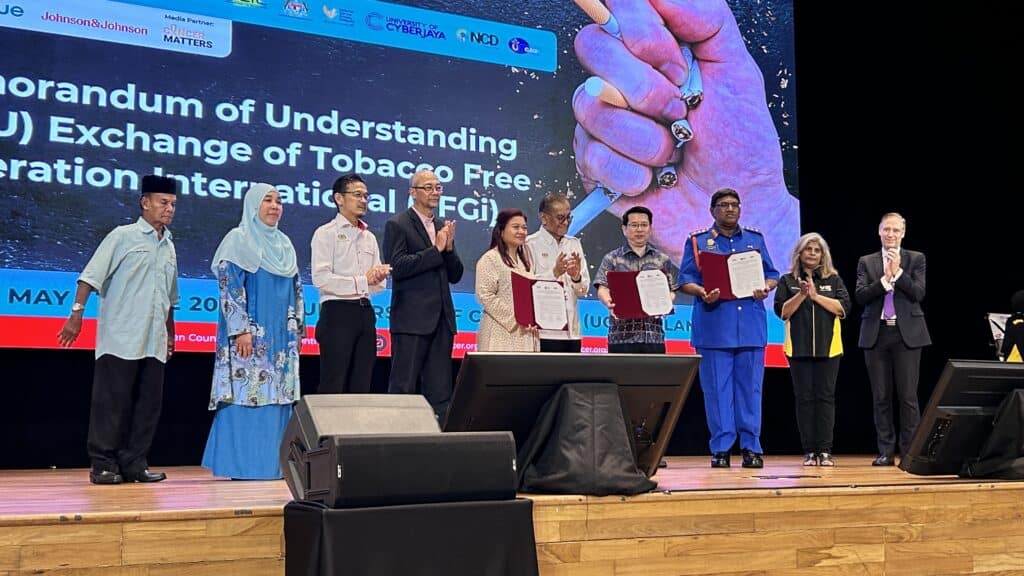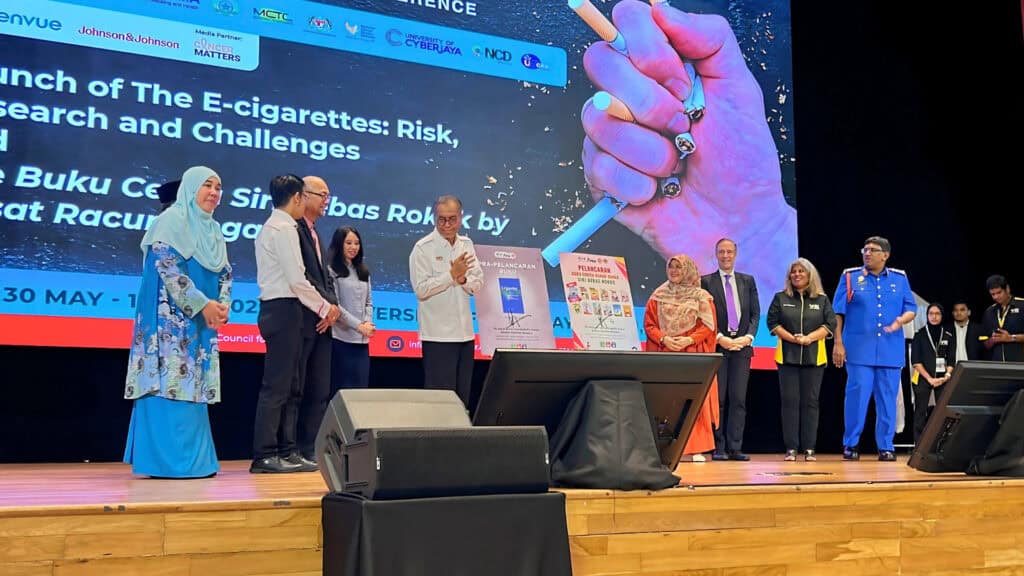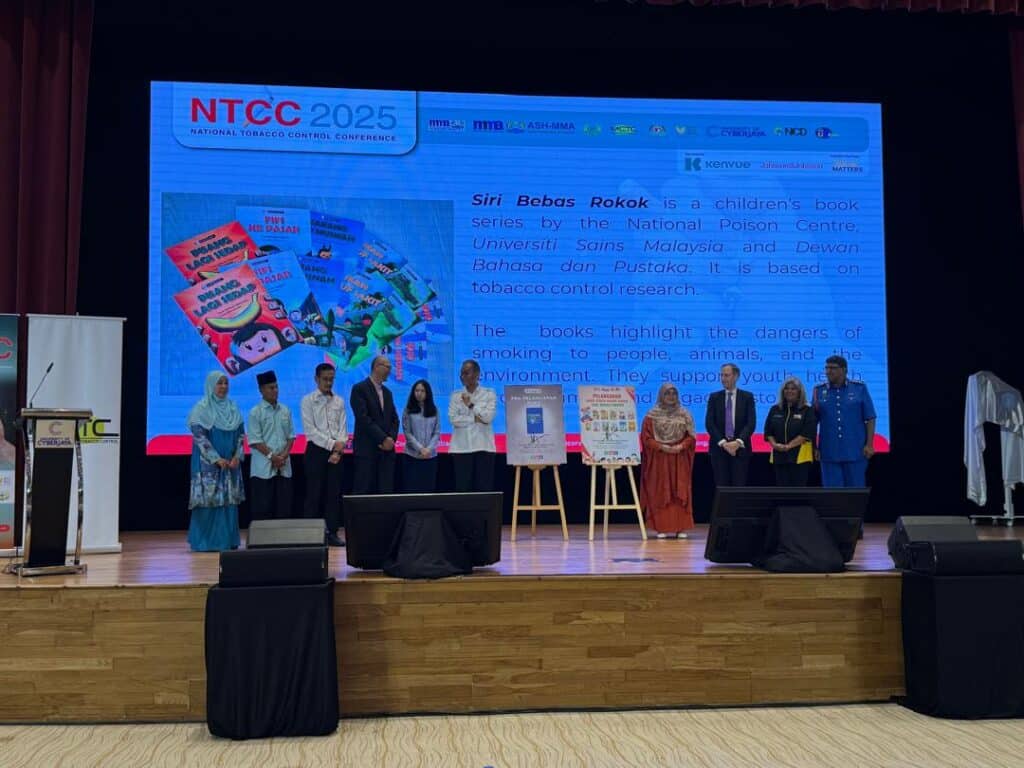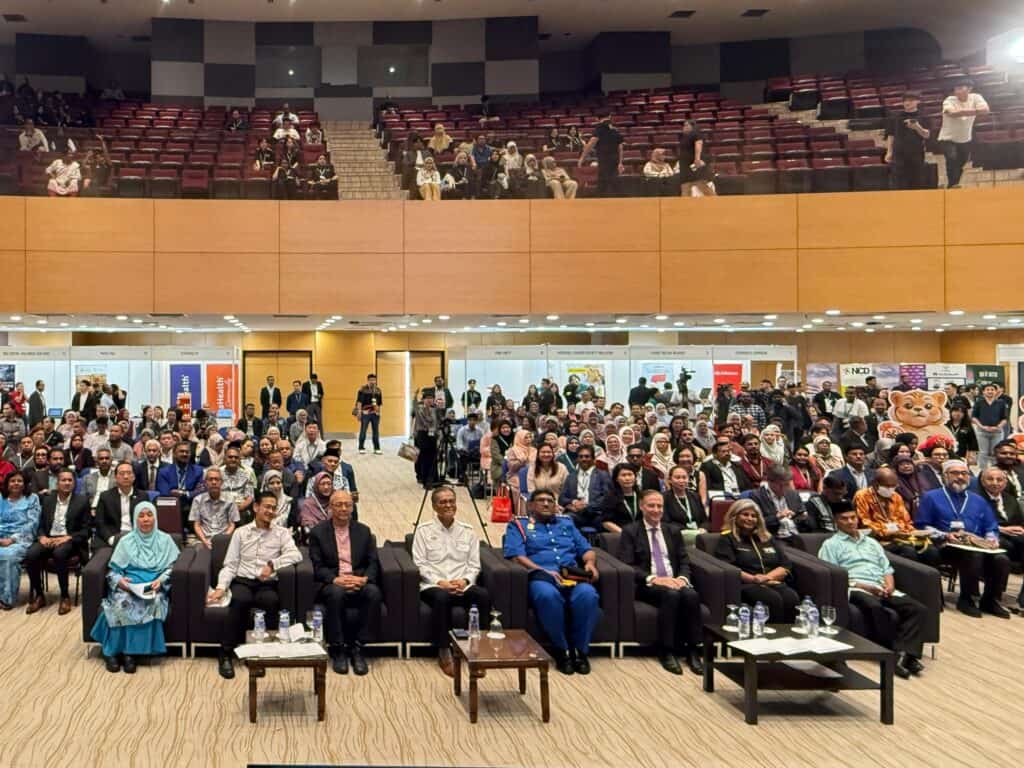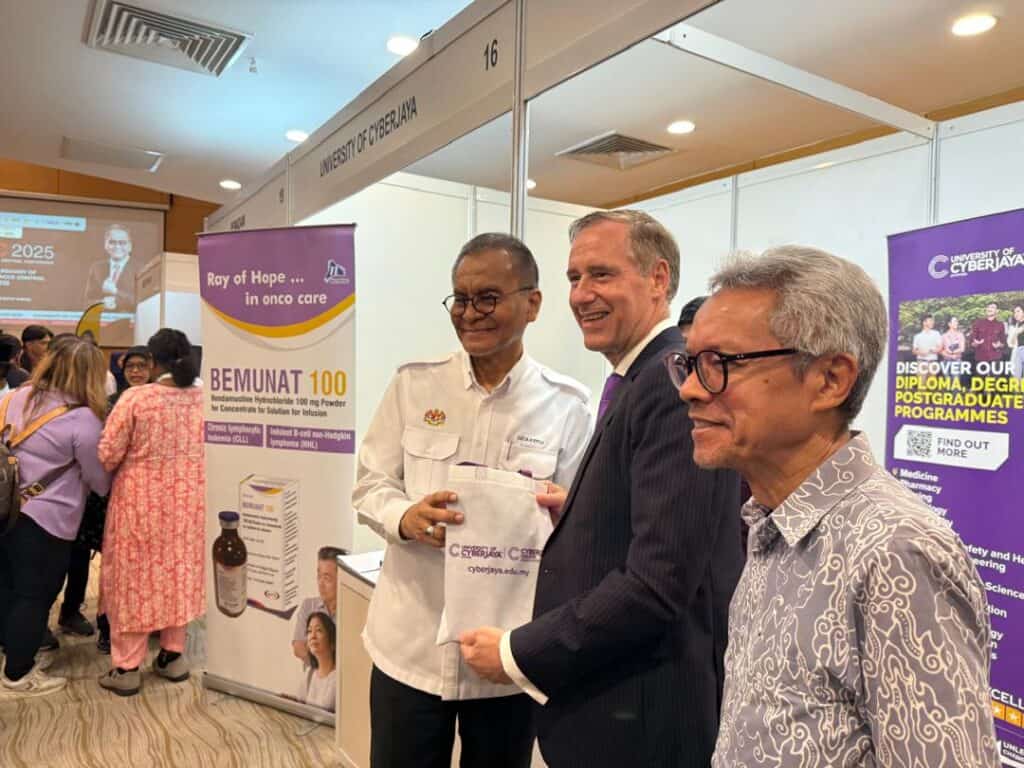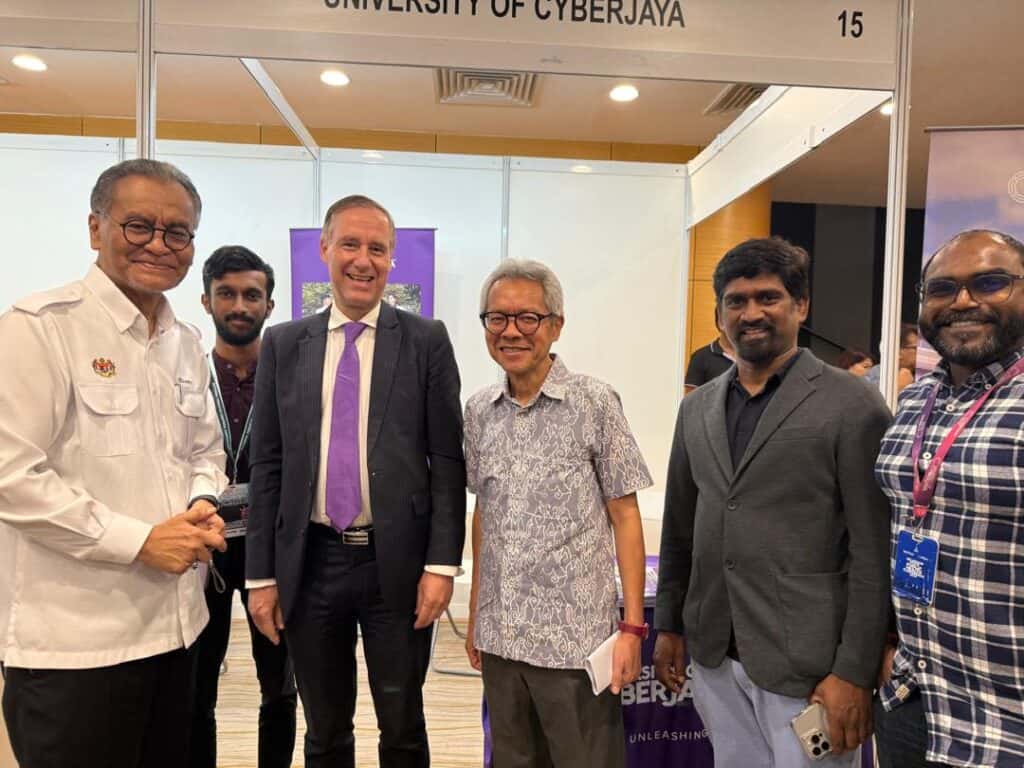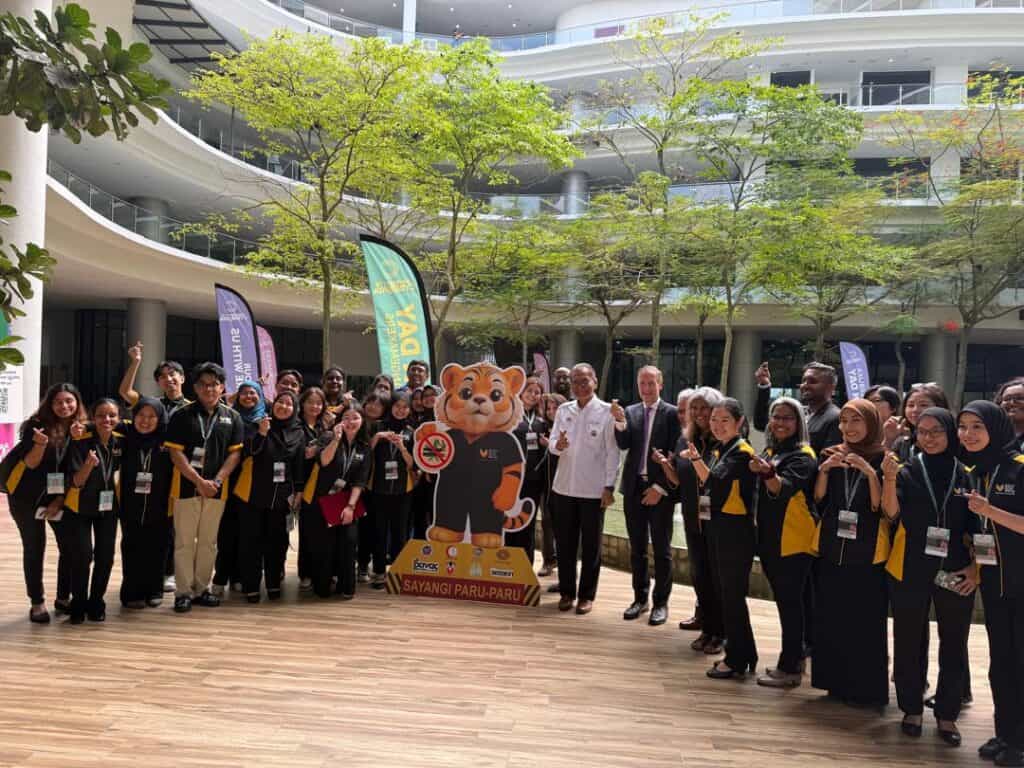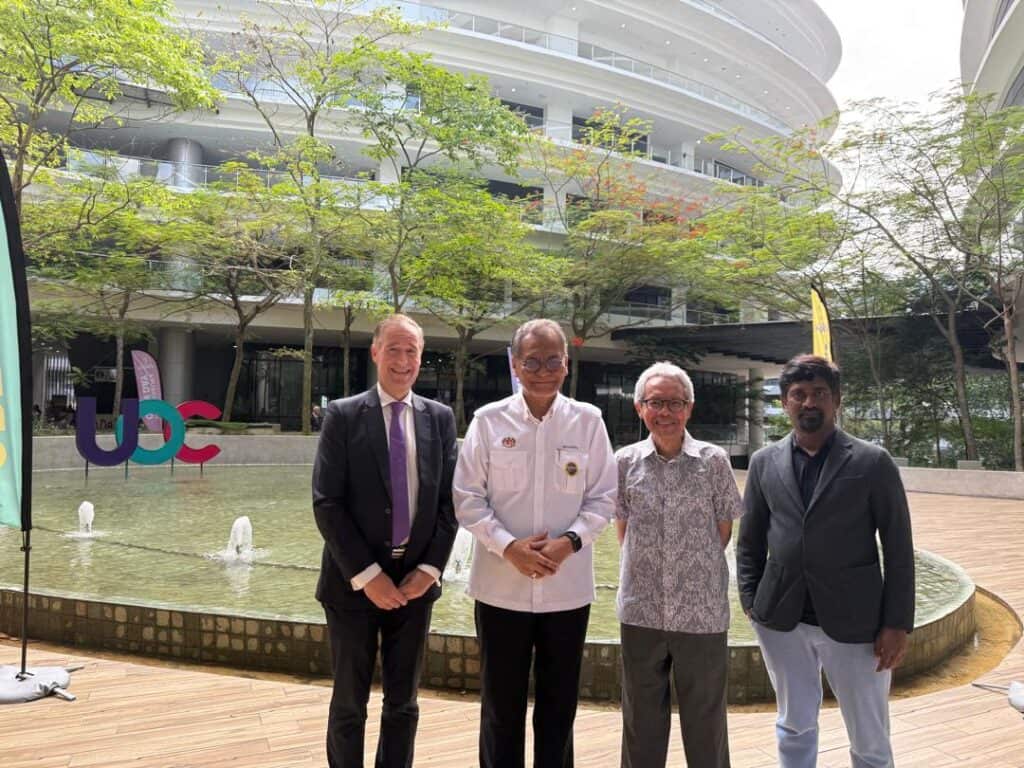UoC Hosts National Tobacco Control Conference 2025 in Collaboration with NCSM
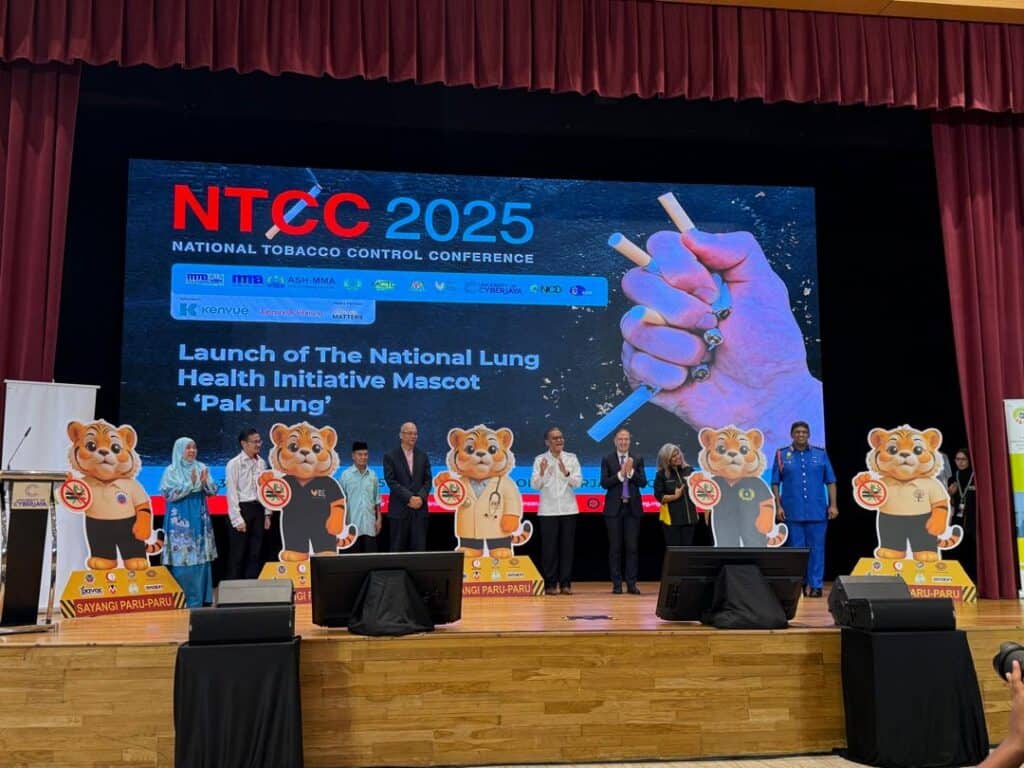
The University of Cyberjaya (UoC) was honoured to host the National Tobacco Control Conference (NTCC) 2025, in collaboration with the National Cancer Society Malaysia (NCSM). This landmark event was officiated by Yang Berhormat Datuk Seri Dr. Dzulkefly Ahmad, Minister of Health Malaysia, whose presence highlighted the government’s steadfast commitment to strengthening tobacco control efforts nationwide.
The conference is a collaborative initiative between the Malaysian Council for Tobacco Control (MCTC), NCSM, and UoC, serving as a vital platform to bring together healthcare professionals, researchers, policymakers, and public health advocates. Participants engaged in discussions aimed at addressing tobacco-related challenges, sharing innovative solutions, and advancing Malaysia’s tobacco control policies.
One of the key highlights of the conference was the presentation delivered by Vice Chancellor, Professor Dr. David Whitford. His presentation shed light on a rising yet often overlooked threat—waterpipe (shisha) smoking. While much attention has been focused on cigarette use, Professor Dr. David Whitford emphasised the growing epidemic of waterpipe smoking, particularly among Malaysian youth. He shared alarming statistics, revealing that 15.6% of male university students in Malaysia are using shisha. This is a concerning trend, as many users are under the misconception that waterpipe smoking is less harmful than traditional cigarette use. However, Professor Dr. David Whitford made it clear that waterpipe smoking is far from a safe alternative. A single 1-hour waterpipe session can expose users to 100–200 times the smoke volume of a single cigarette, a fact that many young people are unaware of.
Despite the rising use of waterpipe smoking, Malaysia’s current tobacco control strategy does not specifically address this growing issue, which represents a significant policy gap. Professor Dr. David Whitford used his platform to call for immediate action, urging for stronger policies to protect young people and reduce the appeal of waterpipe smoking. Among his recommendations were the banning of flavoured shisha, enforcing youth protection laws, training healthcare professionals to ask patients about all forms of tobacco use, and integrating waterpipe smoking into cessation campaigns such as mQuit. These measures, he argued, are necessary to tackle the rise of waterpipe use and protect future generations from its harmful effects.
Held under the theme “Towards a Tobacco-Free Society: Realising the Vision, Executing the Mission”, NTCC 2025 reflects a collective resolve to transform vision into action. The conference reaffirmed the national goal of reducing tobacco use and protecting future generations from its harmful effects through evidence-based strategies, community advocacy, and strong policy alignment.
UoC is proud to be part of this impactful movement, reinforcing our commitment to public health, research, and community well-being. We thank all supporting organisations and stakeholders who made this event a success.
Together, we move forward to build a healthier, tobacco-free Malaysia.

